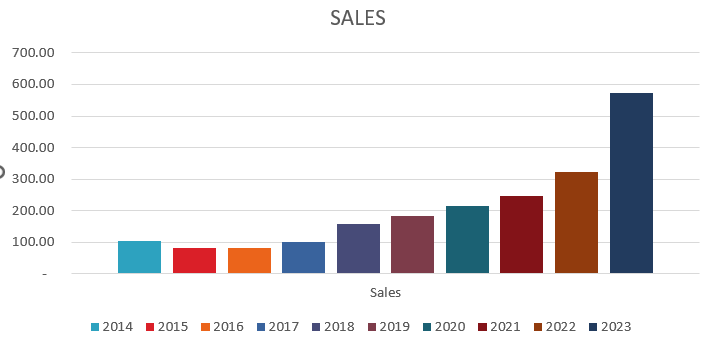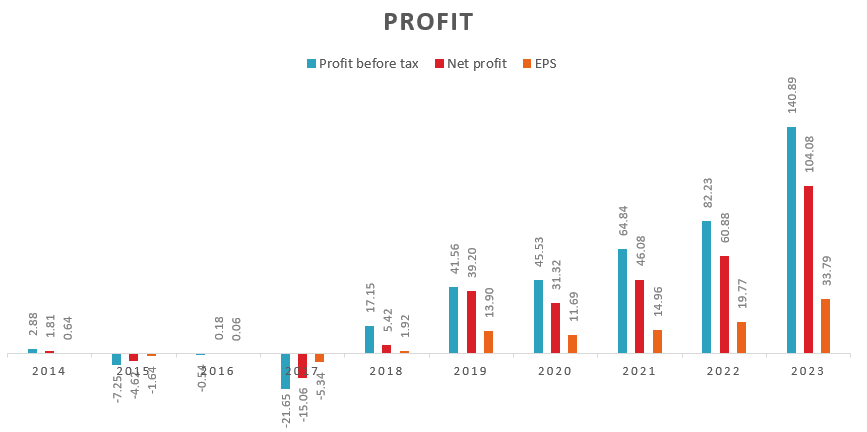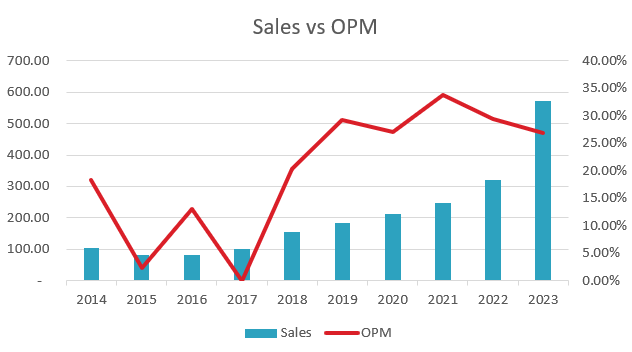At Intelsense we regularly study interesting businesses. We keep profiling them. The idea is to keep learning and expanding our knowledge base.
Business Overview
MTAR Technologies Limited (MTL) started as a partnership firm in 1970 and was incorporated as a private limited company in 1999 by the Late P. Ravindra Reddy, Sri K. Satyanarayana Reddy and Sri P. Jayaprakash Reddy. The company was publicly listed on the exchanges in March 2021.
The company has six manufacturing units, including an EOU in Hyderabad, and has recently started a new unit at Adibatla. The key product portfolio of the company includes critical assemblies such as:
- Liquid propulsion engines to GSLV Mark III
- Base Shroud Assembly & Airframes for Agni programs
- Actuators for LCA
- Power units for fuel cells
- Fuel machining head, Bridge & Column, Thimble Package, Drive Mechanisms etc. to the core of the nuclear reactor.
Some of the clients of the company are ISRO, NPCIL, DRDO, Bloom Energy, Rafael and Elbit among others. Over the years, the company has also developed import substitutes such as ball screws and water-lubricated bearings that are highly specialized and premium products in Nuclear, Space and Defence.
Business Offerings:
Hot Boxes (for Bloom Energy): Manufacturing of power units, specifically hot boxes, hydrogen boxes and electrolysers for the clean energy sector.
Nuclear Reactor Assemblies (for NPCIL): Fuel machining head, drive mechanisms, bridge and column and coolant channel assemblies for the new pressurised heavy water nuclear reactors, as well as for refurbishment of the existing reactors.
Space Launch Vehicle Components (for ISRO): Liquid propulsion engines, components and assemblies for cryogenic engines, specifically turbo pumps, booster pumps, gas generators and injector heads for such engines, and electro-pneumatic modules to serve ISRO’s space launch vehicles.
Defence Components (For DRDO): Base shroud assembly (for Agni missiles), and the assembly of secondary injection thrust vector control (“SITVC”) valves and hydraulic fin tip control (“HFTC”) valves. In addition, MTAR also exports critical defence components to Rafael and Elbit.
Industry Analysis
Nuclear Industry
The nuclear equipment industry in India is set to grow rapidly with the government sharpening its focus on the sector. NPCIL is expected to roll out tenders for 14 reactors (planned expansion market) in the near to medium term in a phased manner.
The total investment for building these reactors would be Rs 1,76,000-1,80,000 crs. Of this, Rs 35,000-43,500 crs would be the equipment market. This growing market opportunity in civil nuclear power is expected to increase opportunities for domestic suppliers present in this sector.
With rising contract volume, while new entrants would plan to make in-roads into the industry, high entry barriers, especially in technology, reliability, and manufacturing capability, will give an edge to the established players like MTAR Technologies.
MTAR caters to 20-25% equipment portion of the overall order for a 700 MWe PHWR nuclear plant. The company supplies 14 different pieces of equipment to the nuclear island, which translates into an addressable market opportunity size of Rs. 700-800 crs per reactor. The total equipment addressable opportunity for MTAR stands at Rs. 7000-8000 crs over the next decade from fleet reactor orders.
MTAR has facilities to address orders from 4 reactors at a time. The Company's ability to manufacture and supply specialized products for the new pressurized heavy water nuclear reactors and refurbishment of the existing reactors enables it to address the massive opportunity available in the civil nuclear power sector.
Clean Energy- Fuel Cells
A fuel cell uses the chemical energy of hydrogen or another fuel to produce electricity. Fuel cells provide power for systems as large as a utility power station and as small as a laptop. Fuel cells function like batteries, but do not run down or need recharging. These produce electricity and heat as long as fuel is supplied.
In volume terms or megawatt installation, the fuel cell industry is expected to grow strongly at 35-40% CAGR over the next five years while cost is expected to decline by 15-20% during the same period. In value terms, it is expected to grow at 14.0-15.0% between 2020 and 2025 with the increase in volume and decline in cost
In the clean energy segment, MTAR caters to Bloom Energy USA, a market leader in the stationary fuel cell segment. Bloom Energy’s sales are larger than those of the next six players combined in the fuel cell space; the industry posted a 40% CAGR in the past four years (annual installations of 1GW in 2019). The industry is expected to witness a 35% CAGR over the next 10 year
The total opportunity size from hydrogen fuel cells is estimated at USD 300 Bn; including other areas such as the US C&I market and international expansion, the total opportunity is estimated at more than USD 2 Trn. Bloom Energy is targeting 25-30% CAGR over CY20-25E
MTAR is one of the key suppliers to Bloom Energy and the sole supplier from India for SOFC & hydrogen units and electrolysers as of FY 2021-22. The Company has 9 years of relationship with Bloom Energy. MTAR caters to 50% - 60% of its typical hotbox requirement and has a 100% compliance record with it.
Space Equipment
The satellite manufacturing and launch systems market in India is estimated to reach Rs 4600 – 4800 crs by 2025, at a CAGR of 7-8% in the forecast period.
India’s satellite launch services are highly cost-competitive and reliable. The launch rate success of PSLV is 96%. From FY 17 - FY 21, ISRO launched satellites from more than 26 countries. Commercial arrangement contracts with 10 countries have been signed.
MTAR has been a trusted supplier to ISRO for the past four decades. It has proven capabilities in manufacturing high-tech products for PSLV, GSLV and SSLV, like liquid propulsion rocket engines (Vikas Engine for PSLV), cryogenic engines, electro-pneumatic modules etc.
An increase in launches from ISRO over the coming years is expected to provide an increased inflow of orders to MTAR. Furthermore, the new sheet metal facility shall enable the company to increase its wallet share. MTAR has initiated the design and development of a Two-Stage to Low Earth Orbit Small Satellite Launch vehicle - Garuda 1. The Company seeks to develop 100-ton and 10-ton all-liquid engines in-house and intends to take the support of IN-SPACe for procurement of Avionics, and marketing support.
The budget for the Department of Space in FY 23 is Rs 12,544 crs. It is estimated that the space budget will attain a value of Rs 18500-19000 crs by FY25 on account of planned and proposed missions. The launches of ISRO are expected to be accelerated from FY 23. There could be 30-35 missions by ISRO spread over the next two years.
Due to regulations, the commercial segment of this industry is virtually non-existent. The proposed policies have changed the outlook for the commercial segment. The commercial segment is expected to reach Rs 8-9 billion by FY25.
Defence Equipment
The Indian defence sector is currently focused on the indigenisation of various defence technologies in view of the recent GoI announcements made on the indigenisation of 108 systems and sub-systems. Recently, the Defence Ministry announced 101 major pieces of defence equipment that the Ministry of Defence (MoD) will no longer clear for import. The 101 items embargoed for import today were preceded by two earlier lists: The first list of 101 items was promulgated on August 21, 2020; and a second list of 108 items was announced on May 31, 2021.
The defence sector is expected to grow further because of the emphasis on national security amidst geo-political tensions like the Russia-Ukraine crisis. There is a high need for self-reliance under the current geo-political scenario.
MTAR is present in the niche areas of Defence. They have supplied 5-ton and 10-ton actuators to the LCA Tejas program. The Company has successfully delivered the first articles of roller screws that are currently being imported from Rollviz Sweden. MTAR is also developing electro-mechanical actuators.
Growth Drivers of the Industry
Increased electricity demand from Nuclear Sources: One of the major growth drivers for India’s nuclear programme is the consistently increasing demand for electricity. With rising carbon neutrality goals and targets, India is focusing on clean power generation through renewables and nuclear technology.
Government plans to triple nuclear capacity by 2031: The government plans to increase nuclear capacity from 6.7 GWe to 22.4 GWe by 2031. Accordingly, it has sanctioned the manufacture of 10 pressurised heavy water reactors (PHWR) in fleet mode (10 x 700MW) with a combined generation capacity of 7 GWe.
Growing Demand for fuel cells for achieving a distributed power generation network: Energy storage is supporting this distributed grid system, with high efficiencies and more distributed power sources thereby increasing the demand for fuel cells.
Increased demand for electrolysers: Electrolysers or reformers for sourcing hydrogen are essential to transition from a Hydrocarbon based economy to a Hydrogen based economy. The increased demand for Green Hydrogen augurs well for the company
Opening up of Space Sector for Private Players: Improving participation from private players is the key agenda for the government. A step in this direction is the establishment of an outreach unit aimed at geospatial application at the National Remote Sensing Centre. To boost innovation and research in the domestic industry, the government aims to establish 12 space technology incubation centres.
Government focus on Technology Transfer: ISRO has initiated a transfer of technology (ToT) with regard to small satellites in order to support new space start-ups. In the near term, there is an expected surge in demand for SSLVs, which can install the satellite in the LEO. Rising satellite demand will, in turn, result in more opportunities for in-orbit upgrades and repairs.
Deal with IN-Space: Indian National Space Promotion and Authorisation Centre (IN-SPACe) has been established which will assume the role of a facilitator and regulator. It will liaison between private players and ISRO to ensure optimum use of the space agency’s infrastructure, scientific and technical resources and data on space missions. MTAR Technologies has signed a pact with IN-SPACe India to design and develop a two-stage to low-earth orbit all-liquid small satellite launch vehicle.
Thrust on Import Substitution in Defence Sector: Government of India is emphasising import substitution. MTAR has submitted the first articles of roller screws which are currently being imported from Sweden; import substitution is expected to provide substantial opportunity in this area. Additionally, the company is working on the development of electro-mechanical actuators and won Rs. 72 Mn orders in FY 2021-22, which are expected to be executed in FY 2022-23
Management
The promoters own close to about 46% stake in the company. DIIs own the next largest share of approximately 27.57% of the business with low ownership of FIIs of about 2.51%. Retail/Public shareholding is 23%.
Mr Parvat Srinivas Reddy is the Managing Director on the board of our Company. Having nearly three decades of industry experience in Manufacturing and Construction. He has been associated with MTAR for the past 13 years. He holds a Bachelor’s degree in Industrial Production engineering, from the University of Mysore and a Master’s degree in Science, specialising in industrial engineering from the College of Engineering, Louisiana Tech University.
The company has several distinguished industry veterans on its board as Independent Directors –
Mr Udaymitra Chandrakant Muktibodh – who has held key positions such as the Technical Director of NPCIL and was also a member of the board of NPCIL
Mr Vedachalam Nagarajan – who has held several key positions at ISRO and was even decorated with the “Yuri Gagarin Gold Medal with a citation” in 2004 for ISRO-Russia cooperation in cryogenic rocket propulsion
Dr Gnana Sekaran Venkatasamy – is an eminent Missile Scientist and the Chief Designer of the Long-Range Ballistic Missile System AGNI 5. He was the Chief Controller of R&D (Missiles & Strategic Systems at DRDO.
The company has appointed Raja Sheker Bollampally as Chief Operating Officer who had earlier in his career worked at – Bloom Energy, Ohmium. Under his able leadership and experience from his past associations, MTAR is expected to begin its new leg of growth.
The average employee tenure in the Company was approximately 12 years with a modest attrition rate of 7.2% even during the pandemic.
The company is respected for its technical know-how gained over the past five decades. This has been derived from a foundation of more than 1,740 employees including contract employees; 24 were employed in the R&D department in FY 2021-22.
Business Opportunities
MTAR is gradually transitioning from precision Engineering towards system integration it established new capabilities such as electronics manufacturing for this purpose MTAR has been declared L1 for tenders worth Rs. 135 Cr approx. in tenders for the upcoming nuclear reactors.
The company has started working on the design of valves, which has immense market potential in Defence. Received orders for First Articles.
MTAR is in the process of developing the Semi Cryo Engine, the next generation of liquid propulsion engines, that enhances the payload carrying capacity of GSLV Mark III from 4 tons to 6 tons. The first engine is expected to be rolled out by FY 24.
Indigenizing bellows for fuel cells that were being imported to achieve better realizations. The company has got qualified for bellows and production has commenced.
The company has initiated the development process for heaters, which are currently being imported.
The company is looking to increase our wallet share with ISRO by addressing opportunities including thrust chambers, light alloy structures, motor casings etc.
MTAR is contributing to the ‘Atma-Nirbhar Bharat’ initiative by developing import substitutes and new products such as roller screws, actuation systems, valves etc
MTAR is looking to diversify its client base to reduce dependency on Bloom Energy accordingly, the company has added new customers such as Andritz, Voith and Worldwide Oil Machine; and is in discussions with various global MNCs including IAI, Thales, BlueBird Aero Systems, GE Hydro, Enercon etc.
MTAR has acquired Gee Pee Aerospace to enhance its capacity in bottleneck areas to address the increased volume of orders from MNCs.
Risks
Customer Concentration Risk– More than 80-85% of the revenue comes from a single company Bloom Energy.
Supply Chain Risk – The Company doesn’t have any long-term contracts with any of our raw material suppliers.
Stringent Regulations and Quality control compliance – MTAR operates in an industry with stringent regulations such as Space and Defence and almost all of its customers require MTAR to adhere to strict Quality Control norms and compliances.
Working capital-intensive operations – The operations of the company are highly capital-intensive and the cash conversion cycle has been increasing for the past several years.
RM price, availability and forex fluctuations – The company is susceptible to fluctuations in the price of its Raw materials and forex rates. Availability of Raw Materials is essential for the timely delivery of goods and delays can impact the working capital cycle for the company.





No comments:
Post a Comment